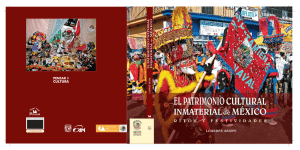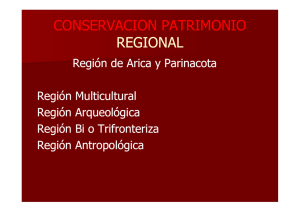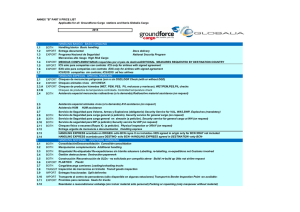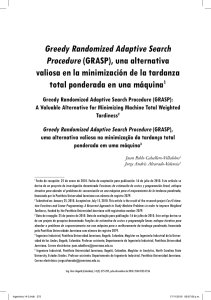1 LA INMORTALIDAD DEL ALMA EN EL FEDÓN Y LA
Anuncio
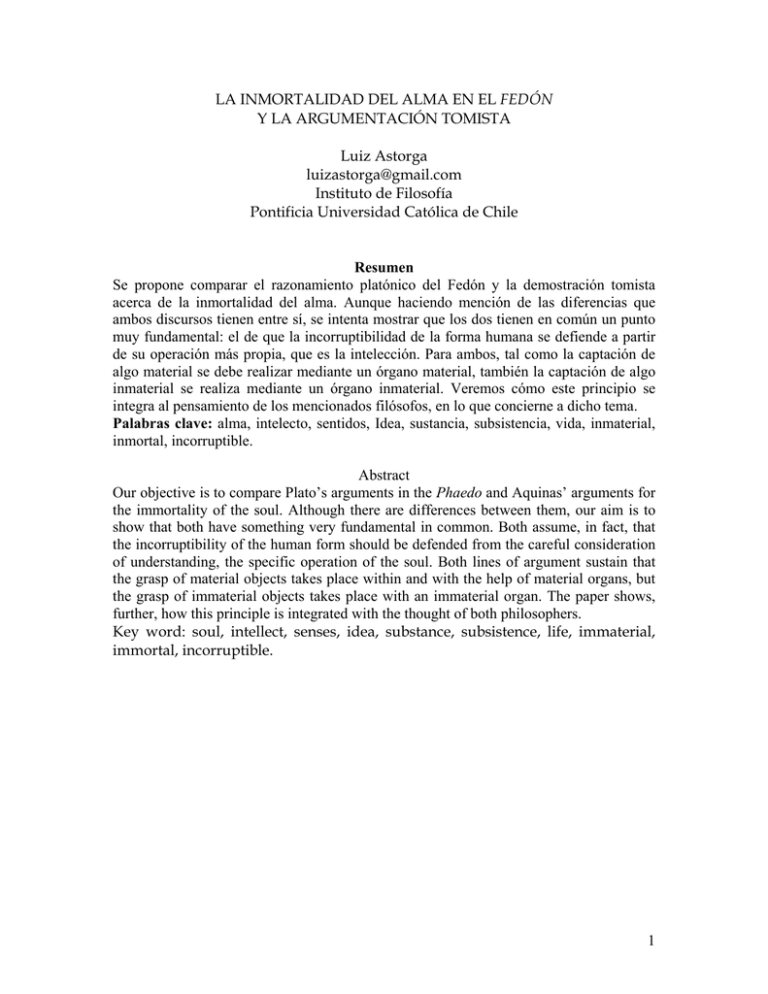
LA INMORTALIDAD DEL ALMA EN EL FEDÓN Y LA ARGUMENTACIÓN TOMISTA Luiz Astorga [email protected] Instituto de Filosofía Pontificia Universidad Católica de Chile Resumen Se propone comparar el razonamiento platónico del Fedón y la demostración tomista acerca de la inmortalidad del alma. Aunque haciendo mención de las diferencias que ambos discursos tienen entre sí, se intenta mostrar que los dos tienen en común un punto muy fundamental: el de que la incorruptibilidad de la forma humana se defiende a partir de su operación más propia, que es la intelección. Para ambos, tal como la captación de algo material se debe realizar mediante un órgano material, también la captación de algo inmaterial se realiza mediante un órgano inmaterial. Veremos cómo este principio se integra al pensamiento de los mencionados filósofos, en lo que concierne a dicho tema. Palabras clave: alma, intelecto, sentidos, Idea, sustancia, subsistencia, vida, inmaterial, inmortal, incorruptible. Abstract Our objective is to compare Plato’s arguments in the Phaedo and Aquinas’ arguments for the immortality of the soul. Although there are differences between them, our aim is to show that both have something very fundamental in common. Both assume, in fact, that the incorruptibility of the human form should be defended from the careful consideration of understanding, the specific operation of the soul. Both lines of argument sustain that the grasp of material objects takes place within and with the help of material organs, but the grasp of immaterial objects takes place with an immaterial organ. The paper shows, further, how this principle is integrated with the thought of both philosophers. Key word: soul, intellect, senses, idea, substance, subsistence, life, immaterial, immortal, incorruptible. 1
